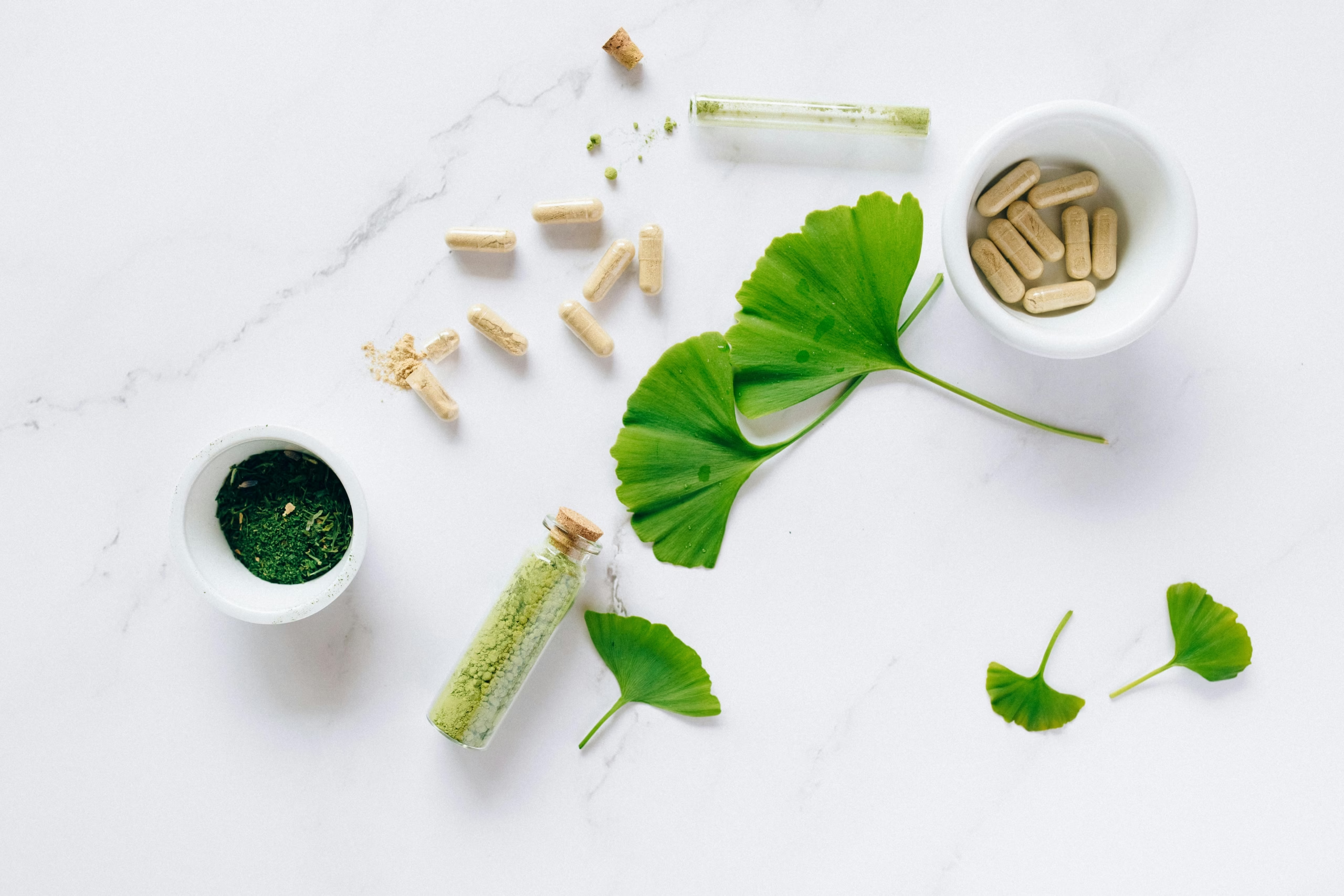In recent years, functional ingredients have become vital allies in the pursuit of improved mental health. Fueled by scientific breakthroughs, consumer curiosity, and widespread interest in preventive well-being, natural substances—from adaptogens to vitamins—are now being embraced globally to support mood, cognition, and stress resilience. Notably, the global mental well-being supplement market has reached $11.5 billion in 2025, with projected growth above 8% annually.
Furthermore, mainstream news outlets continue to spotlight the mental health benefits of herbs, fermented foods, and dietary patterns, reinforcing their role in public health today .
1. Ashwagandha (Withania somnifera) – Adaptogen Extraordinaire
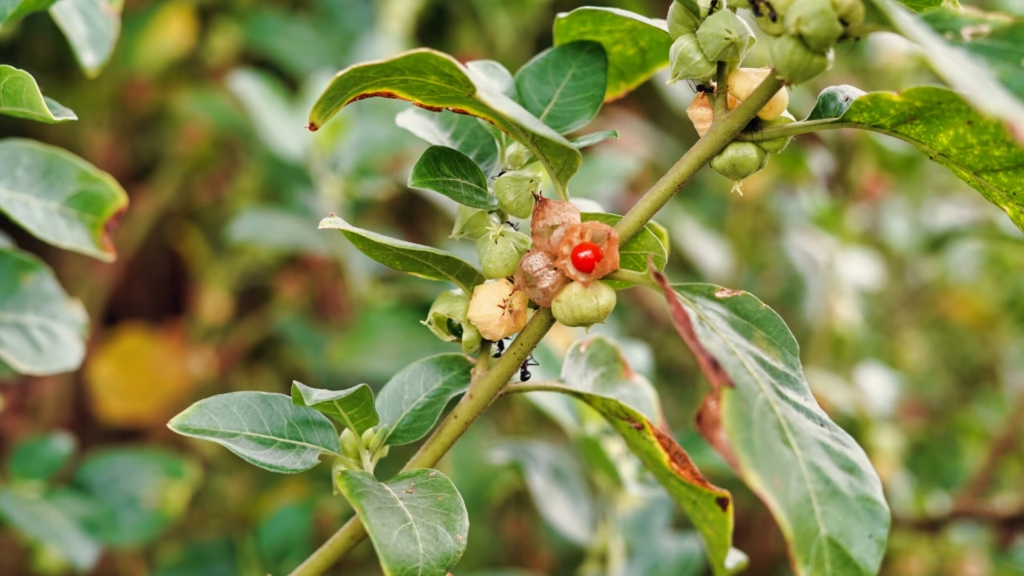
Why Ashwagandha?
- It helps the body adapt to stress by modulating cortisol levels and the HPA axis.
- Revered in Ayurvedic medicine for centuries.
Latest Evidence & Trends
- 2025 consumer trend reports show +11% growth in adaptogens like ashwagandha.
- Clinically shown to reduce anxiety, enhance stress resilience, and support mood balance.
“Ashwagandha was linked to significant reductions in perceived stress and anxiety in randomized trials.”
How to Use
- Dosage: 300–600 mg extract daily.
- Forms: capsules, teas, lattes, and functional beverages.
- Commonly paired with magnesium for synergistic calmness.
2. Rhodiola Rosea – For Fatigue & Mental Energy

Cognitive Perks
- Acts as an adaptogen to reduce fatigue and boost resilience.
- Effective in easing mild-to-moderate depressive symptoms after 2 weeks.
Market Insights
- Part of the rising adaptogen niche in 2025.
- Featured in nootropic blends, energy bars, and supplements aimed at mental burnout.
Recommended Intake
- Standardized extracts of 200–400 mg daily.
- Best taken earlier in the day due to mild stimulating effects.
3. Lion’s Mane Mushroom – The Neuro‑Regenerator

Brain Benefits
- Stimulates nerve growth factor (NGF), supporting nerve regeneration.
- In older adults, 16 weeks of daily supplementation led to improved cognitive scores in a double-blind trial.
Trending Now
- Featured prominently in 2024–2025 functional food trends.
Usage Tips
- Dosage range: 500–3000 mg daily.
- Mix into coffee, smoothies, or take as capsules/extracts.
4. Bacopa Monnieri – Memory & Neuroprotection

Cognitive Effects
- Ayurvedic herb proven to improve memory, alertness, and clarity within weeks.
- May reduce inflammation and protect neurons—potentially aiding against neurodegenerative illness.
Consumption Guidance
- Use standardized extract containing 45% bacosides.
- Daily dosage: 300–500 mg.
- Best taken with meals—can cause mild gastrointestinal upset in some users.
5. Omega‑3 Fatty Acids – Neuroinflammation Busters
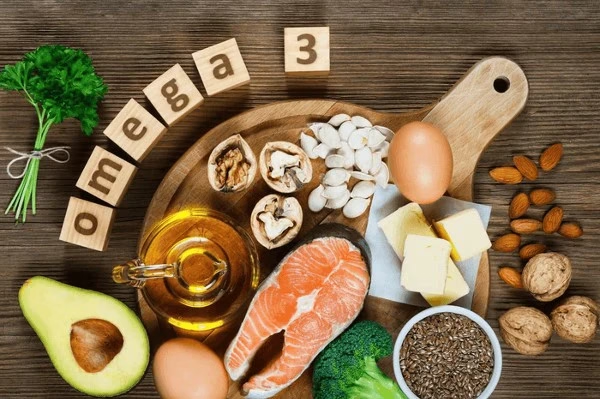
Mental Health Value
- EPA-rich omega‑3s consistently linked to reduced depression symptoms when taken at >2 g/day.
- They may support brain structure, neurotransmission, and reduce inflammation.
Practical Sources
- Oily fish like salmon and mackerel.
- High-quality supplements standardized for EPA ratio.
2025 Trend
- Functional foods and beverages fortified with omega‑3 are gaining consumer appeal.
6. Probiotics & Psychobiotics – Gut‑Brain Harmony
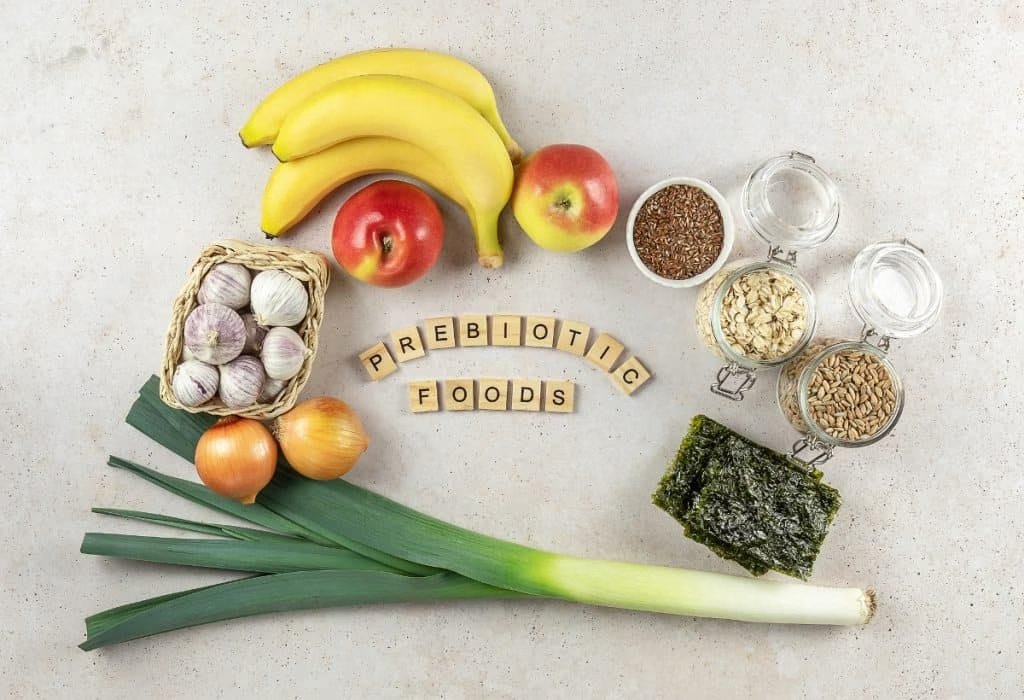
How They Help
- Influence GABA and serotonin production through the gut–brain axis.
- Fermented foods like kimchi and miso linked to lower anxiety and improved mood.
Ingredients in Spotlight
- Lactobacillus rhamnosus, Bifidobacterium infantis.
Ways to Incorporate
- Daily intake of probiotic-rich foods or supplements.
- Consistency over weeks is key for benefits.
7. Vitamin D – The Sunshine Mood Booster
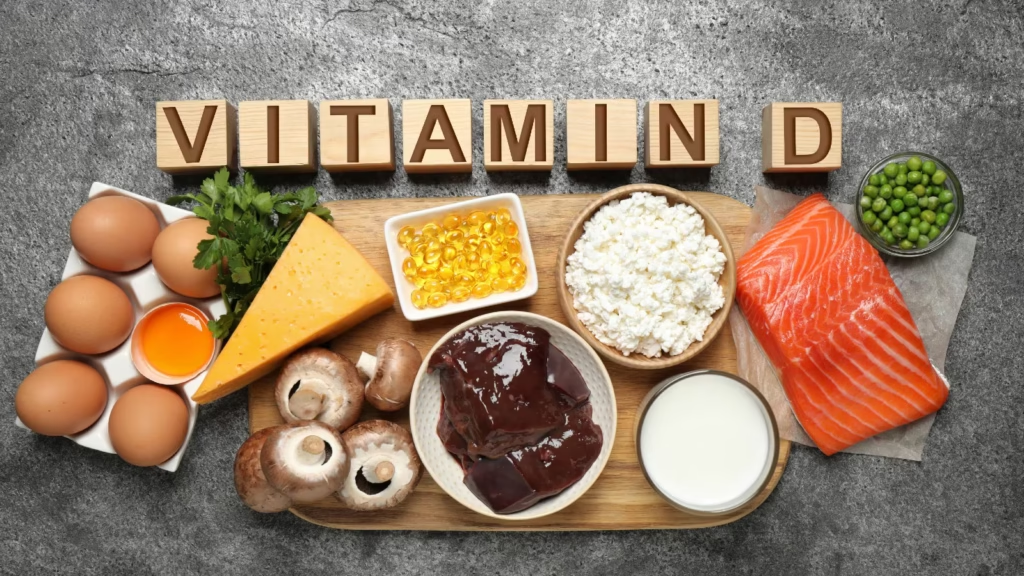
Mental Health Role
- Low levels are associated with depression, anxiety, and cognitive impairment.
- Exhibits anti-inflammatory and neuroprotective effects.
Recommendations
- Monitor blood levels, especially in sun-deprived regions.
- Supplementing with 1000–5000 IU/day is common; higher doses may be needed per healthcare advice.
8. Magnesium (Especially L‑Threonate) – Calm & Cognition
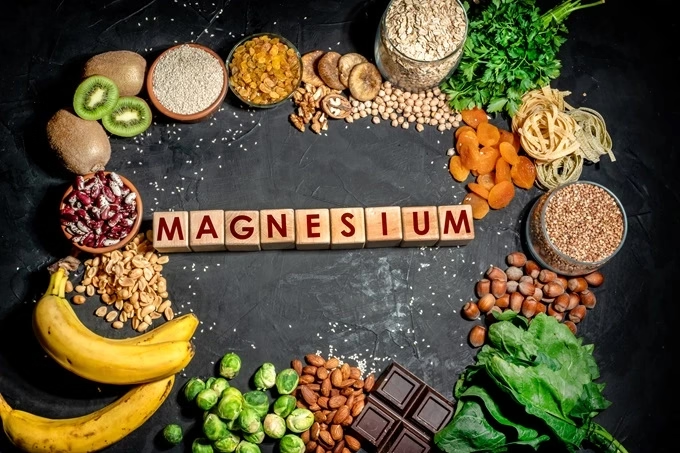
Why It’s Important
- Deficiency is common in people with depression.
- Magnesium L-threonate crosses the blood-brain barrier to strengthen synapses and improve memory.
Intake Advice
- Daily dose: 200–400 mg elemental magnesium, with higher L-threonate for brain benefits.
- Titrate slowly to avoid digestive upset.
9. Zinc – Mood & Neurotransmitter Support
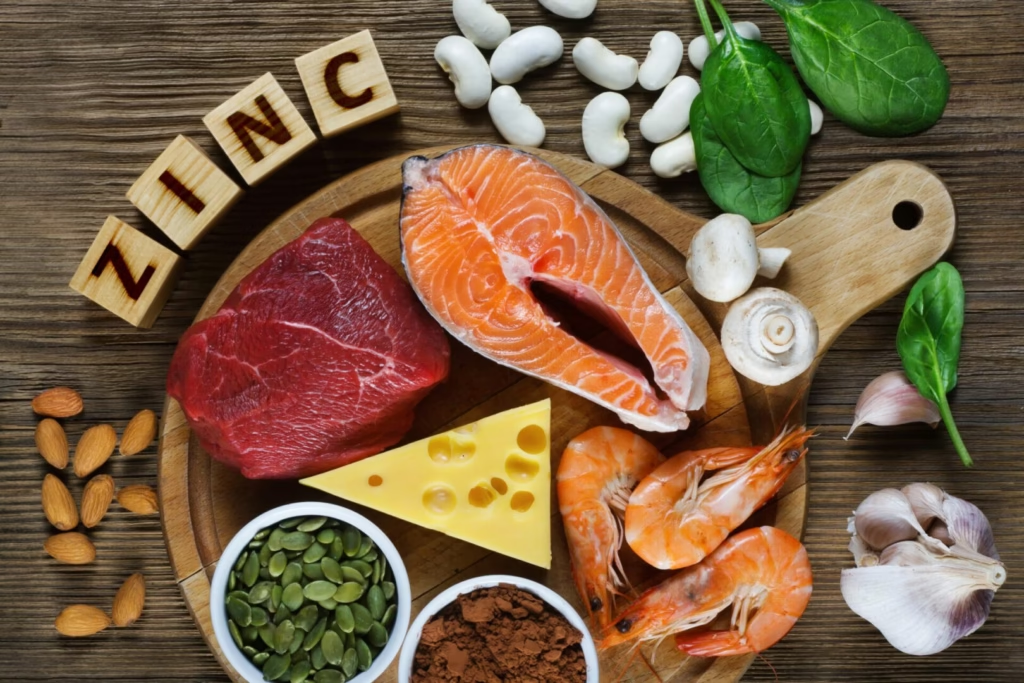
What Studies Show
- Lower zinc levels have been consistently observed in those with depressive symptoms .
- Supplementation can augment antidepressant efficacy and improve depressive outcomes.
Practical Guidance
- Standard dose: 15–30 mg daily.
- Balance with copper to ensure proper mineral ratios.
10. Inositol – Natural Neurotransmitter Modulator
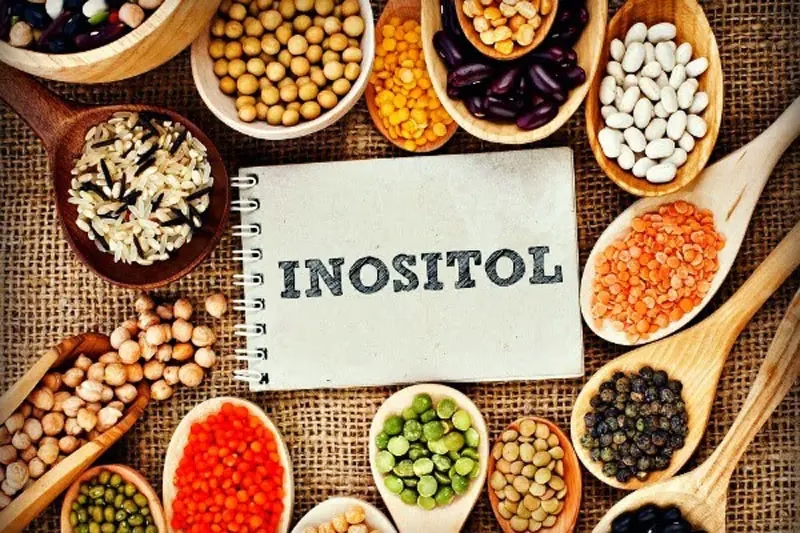
Mental Health Benefits
- Sugar-like molecule found in beans and nuts.
- Double-blind trials show significant benefits in depression treatment .
Dose and Use
- Typically 12–18 g/day (divided doses).
- May cause loose stools; begin with lower dosages.
Latest Diet-to-Mind Breakthroughs
- MIND Diet’s cognitive benefits recognized in Neurology (2024) for dementia prevention.
- GAIA Study correlates anti-inflammatory diet with reduced burnout.
🔧 Practical Application: How to Build a Mental-Health Support Regimen
- Start with foundation: diet rich in fruits, vegetables, whole grains, omega‑3s, and fermented foods.
- Add targeted actives: choose 2–3 of the ingredients above based on personal goals like stress relief, focus, or mood uplift.
- Cycle smartly: rotate adaptogens monthly; maintain vitamins/minerals daily; take mushrooms or probiotics consistently.
- Track outcomes: use mood apps, journals, or biometric data to assess changes in mood, cognition, sleep.
- Consult professionals: always check with a doctor especially if taking medication, pregnant, or managing health conditions.
Summary Table of Top 10 Ingredients
| Ingredient | Main Benefits | Typical Dose |
|---|---|---|
| Ashwagandha | Stress relief, cortisol balance | 300–600 mg/day |
| Rhodiola Rosea | Energy, mood stability | 200–400 mg/day |
| Lion’s Mane Mushroom | Neurogenesis, focus | 500–3000 mg/day |
| Bacopa Monnieri | Memory, neuroprotection | 300–500 mg/day |
| Omega‑3 Fatty Acids | Mood, inflammation, brain health | ≥2 g EPA/day |
| Probiotics/Psychobiotics | Gut-brain axis, anxiety reduction | Varies by strain |
| Vitamin D | Mood, immune support | 1000–5000 IU/day |
| Magnesium L‑Threonate | Cognition, sleep, synaptic density | 200–400 mg/day |
| Zinc | Neurotransmission, depression support | 15–30 mg/day |
| Inositol | Neurotransmitter modulation, depression | 12–18 g/day |
Conclusion
Enhancing mental health through functional ingredients is more feasible and informed than ever—thanks to a blend of rising research, booming markets, and evolving consumer culture. In 2025, leveraging key ingredients such as ashwagandha, Lion’s Mane, magnesium L-threonate, and psychobiotics can bolster stress resilience, focus, mood, and memory—all through natural and well-researched means.
By combining whole-food foundations with thoughtful supplementation, and by tracking outcomes, individuals can build a personalized mental health toolkit that is both realistic and effective.
![]()
